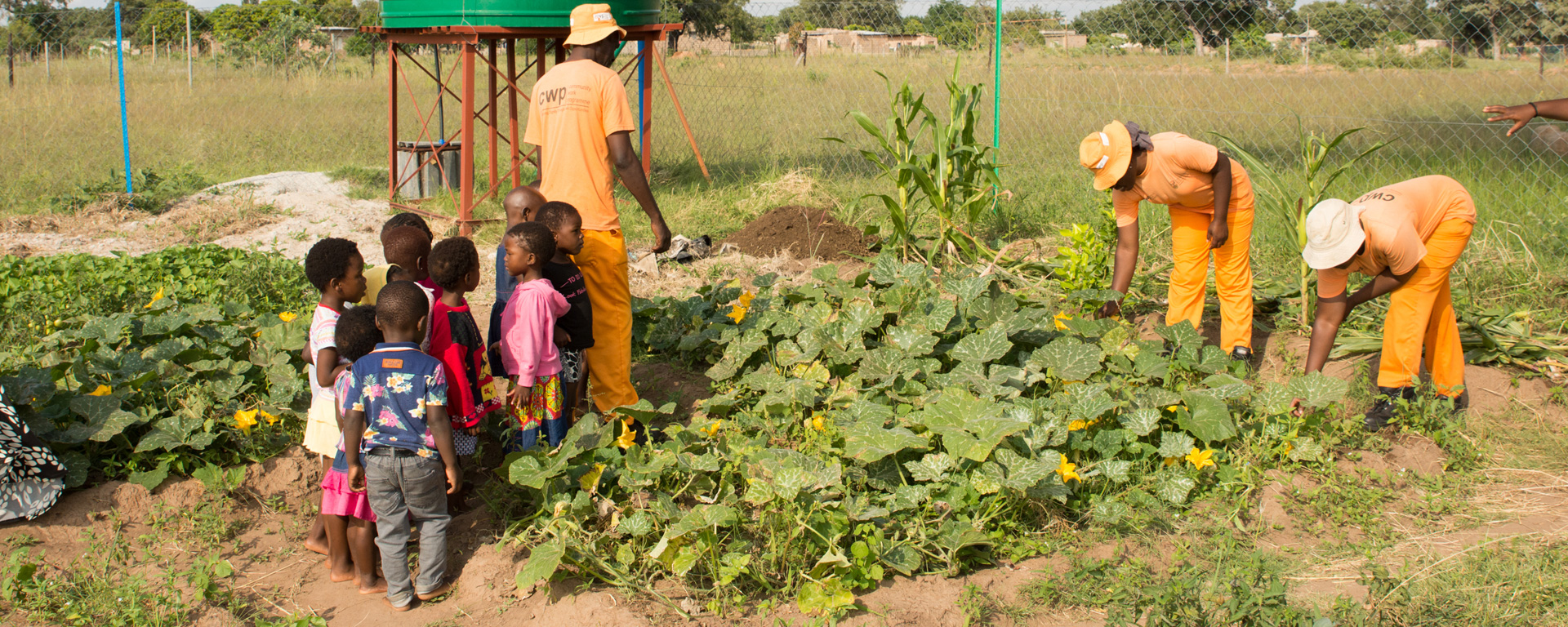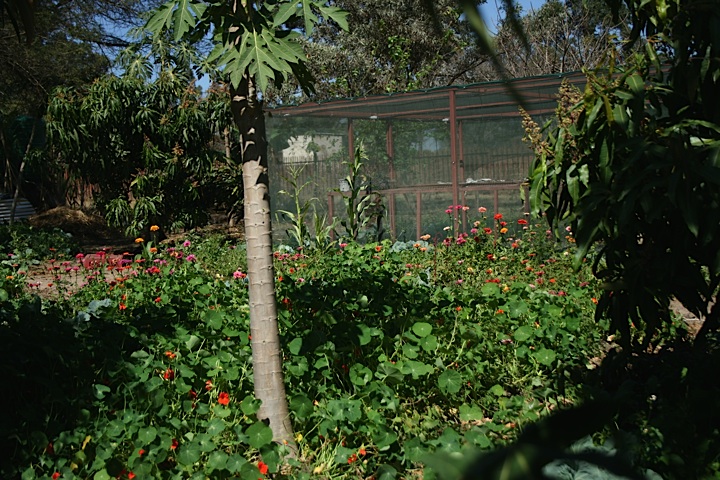
10 Jul 2020 Let’s Talk About Permaculture!
Food Insecurity in Mpumalanga South Africa
In 2017, 1.6 million households in SA experienced hunger. Mpumalanga and Limpopo have some of the highest rates of food insecurity in the country.
Our garden/nutrition program was created as a response to Mpumalanga and Limpopo’s high rates of food insecurity. Our permaculture programs first focused on helping schools design thriving permaculture gardens. These gardens help supplement the schools’ nutritional programs, adding fresh and nutritious fruits and vegetables into the diets of their young learners. Our permaculture program has evolved over the years as our team has helped start several community gardens and worked with families in our community to help design over 300 home gardens. The newest addition of the program is our Permaculture Center which will provide support and classes to the community which includes permaculture training and services, nutrition and cooking classes, computer access and training, junior entrepreneurial program, and a Girls & Boys Club.
The food programs at our partner schools support families by providing 1-2 meals a day to their school age children. For many families, in the region, they can only afford to feed some members of their households, so the meals provided by their schools are essential to keeping all their children fed. Due to COVID19, schools closed and many families were left to figure out how they were going to feed their family. Organizations in the area focused their efforts on food parcel programs. We stepped in working with local partners to deliver food and essential goods to homes on a regular basis. We focused on our gardens during the lockdown, planting more seedlings, harvesting, and trying new permaculture techniques. Large harvests at our center and Trygive’s and Leantte’s community gardens allowed us to donate fresh fruits and vegetables to as many families throughout Mpumalanga. Our partner school, Maranatha Creche, also donated their harvests to their neighbors in need. A Spring of Hope’s food program became widely recognized over the past couple of months throughout Acornhoek, Rooiboklaagte B, and Welverdiend and families who have not considered gardening are now witnessing how easy and beneficial it is to start their own home gardens. This program has allowed us to expand our outreach. We are now working with and supporting members of our community that we had not interacted with before on a service level. As more people in Mpumalanga become interested in home gardening, we hope to direct them to our Permaculture Center and our soon to be permaculture gardening programs.
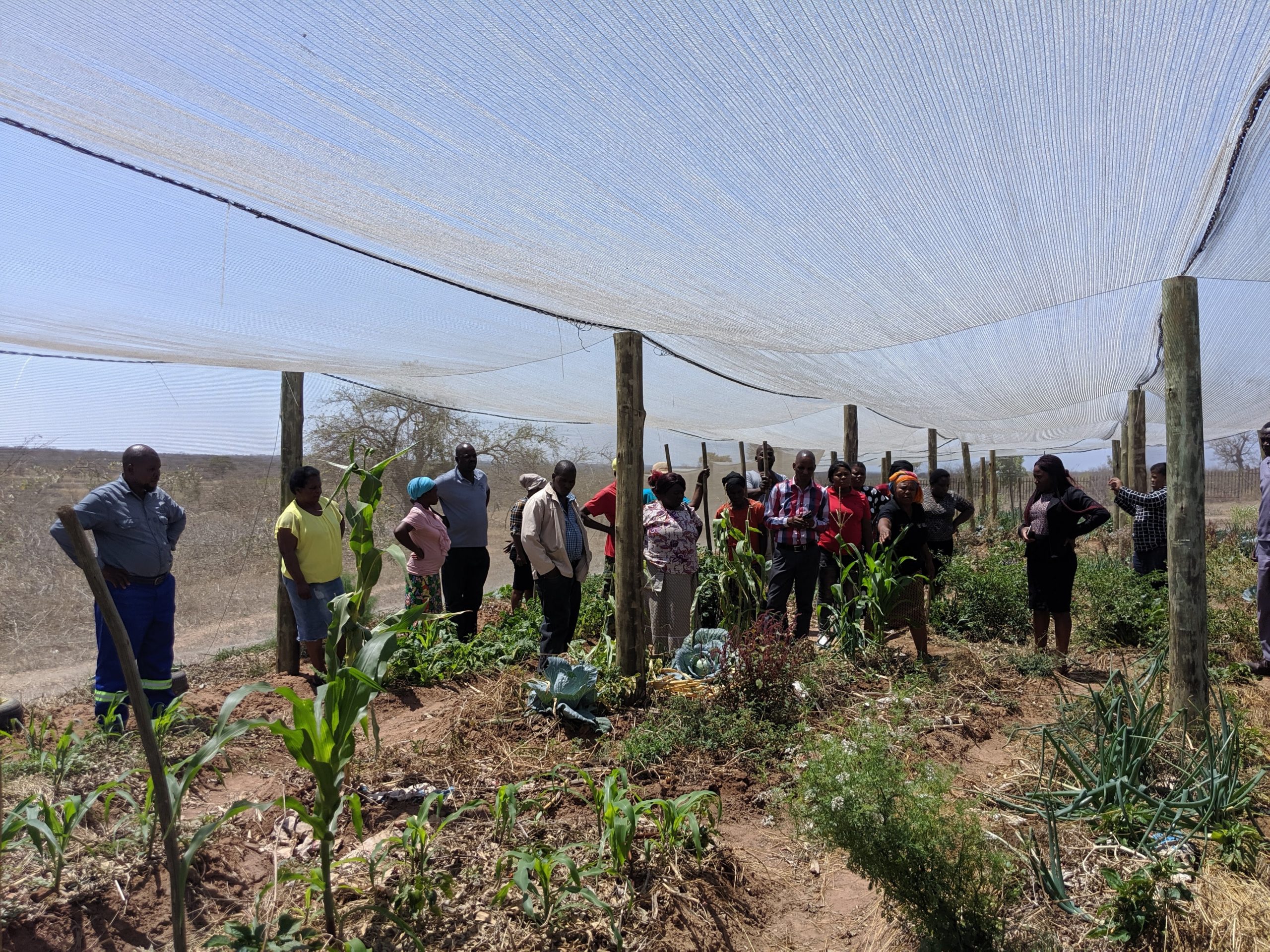
What Is Permaculture?
Permaculture is a model of gardening that involves conscious design and maintenance of agriculturally productive systems. It focuses on sustainability, diversity, and the conservation of earth’s resources. Permaculture techniques are self-sufficient and are designed to work with nature and the changing climate. In regions like Mpumalanga and Limpopo, conserving water and adapting to the changes in climate is extremely important when growing food. Using techniques like shade netting, raised beds, mulching, recycling materials to create tower gardens or lazy gardens, collecting seeds to start new seedlings, planting perennials, and planting polycultures helps increase yields, lower the environmental impact, conserve earth’s resources, and sustain a reliable source of organic fruits and vegetables.
Leanette first introduced permaculture to A Spring of Hope at Beretta Primary School. After successfully drilling a borehole at Beretta, Leanette promised Joanne and Brittany Young that she would create a thriving garden that would feed her students and her community without using large amounts of water and resources. Leanette encouraged her students and staff to get involved in the garden and it is now an integral part of their school and community. We have had great success in introducing permaculture to all of our partner schools as Leanette and Trygive teach each school how to design and grow their gardens efficiently using the limited time and resources they have at each school.

Teach A Man To Fish
Food parcels have been essential to supporting the community and keeping families safe and healthy during the nationwide lockdown; but, the donations of fresh fruits and vegetables are what excited families and kept the community connected. Families with new time on their hands, started gardens and asked Trygive and Leanette for advice and assistance.
As we look to the future we are planning and designing new programs to best utilize our new Permaculture Center to its fullest potential. Our programs focus on not only providing information about permaculture but providing resources and sponsorships to encourage families to start gardens. We hope that by providing families with resources and teaching affordable techniques of permaculture, families will easily start successful gardens and create a stable and reliable source of food for their families.
The old adage of “Give a fish and he eats for a day, but teach a man to fish and he eats for life” will always ring true. From Day One, our vision was to combat severe poverty in rural South Africa. We started to do this by focusing on students and investing in WASH+ programs at schools and helping schools provide a better quality of education and service to their students. We have witnessed how schools with the necessary resources and programs are able to focus on their students and equip them with the skills they need to fulfill employment and leadership in and out of the workplace. We know that to fully combat the cyclical poverty in Mpumalanga and Limpopo we need to reach outside of the school and invest in the community as a whole, providing skills and services to community members to help them feed their families, improve their job security, and increase their income.
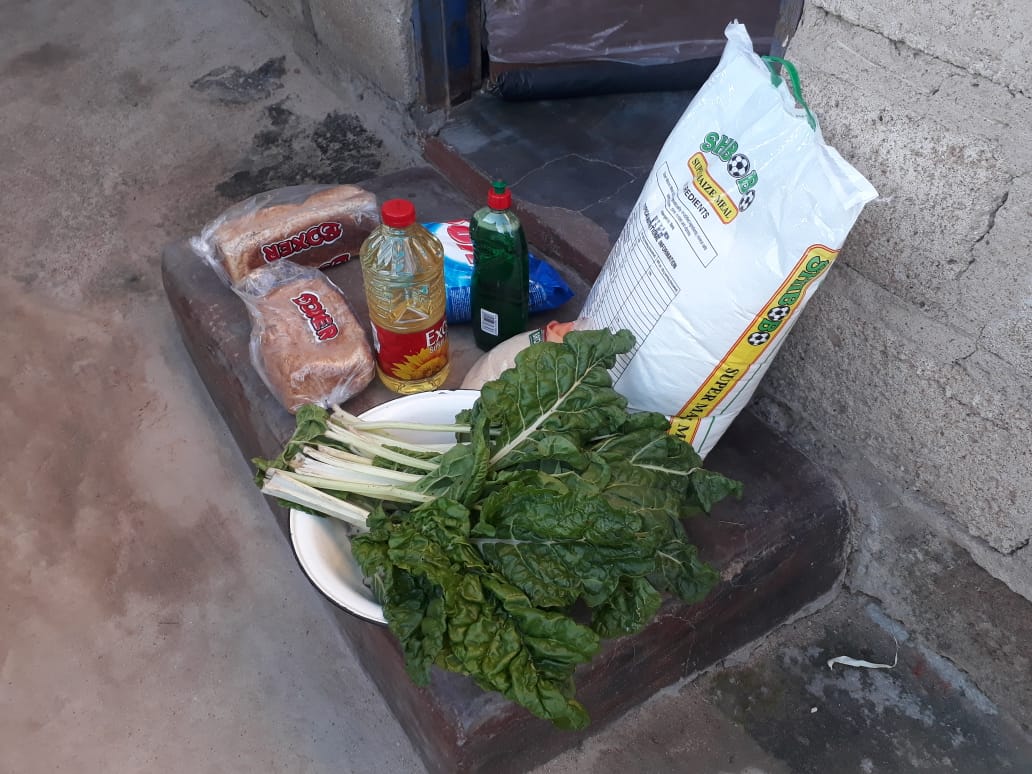
A Spring of Hope’s Permaculture Centre
To support the community in a stronger way, we have built a new community center to expand our outreach and provide further community development. The construction of the center is complete and we are now in the process of developing and finding funding for several new community programs. Our new permaculture programs focus on the education of permaculture gardening techniques and the assistance from our team to help community members create thriving home gardens. ASoH will offer free classes on best management practices in source water protection, conservation, organic gardening and nutrition as well as operation and management of the wells themselves.
These programs include promoting and teaching permaculture by hosting gardening workshops at our Permaculture Center and Outdoor Classroom. We look to not only provide support through consultations and training from our experienced and knowledgeable staff but we also want to take a step further by providing a space for community members to inspire and share. We want to empower neighbors to support one another. By providing a space to share experiences, harvests, garden materials and resources we can promote a larger sense of community and express the power of permaculture and water management.
We have three new programs that we would like to get started at our Permaculture Centre. COVID19 has impacted us greatly with the restriction of travel and cancellation of charity auctions. With this, we have had to stall all of our projects both current and new. To help us get our center up and running we need your help. Please consider donating to the development of our Permaculture Center, you would be supporting our new Permaculture Programs which include an annual Garden Sponsorship of 50 home gardens, a biannual Permaculture Workshop Series, and a Seed Center & Tool Library!
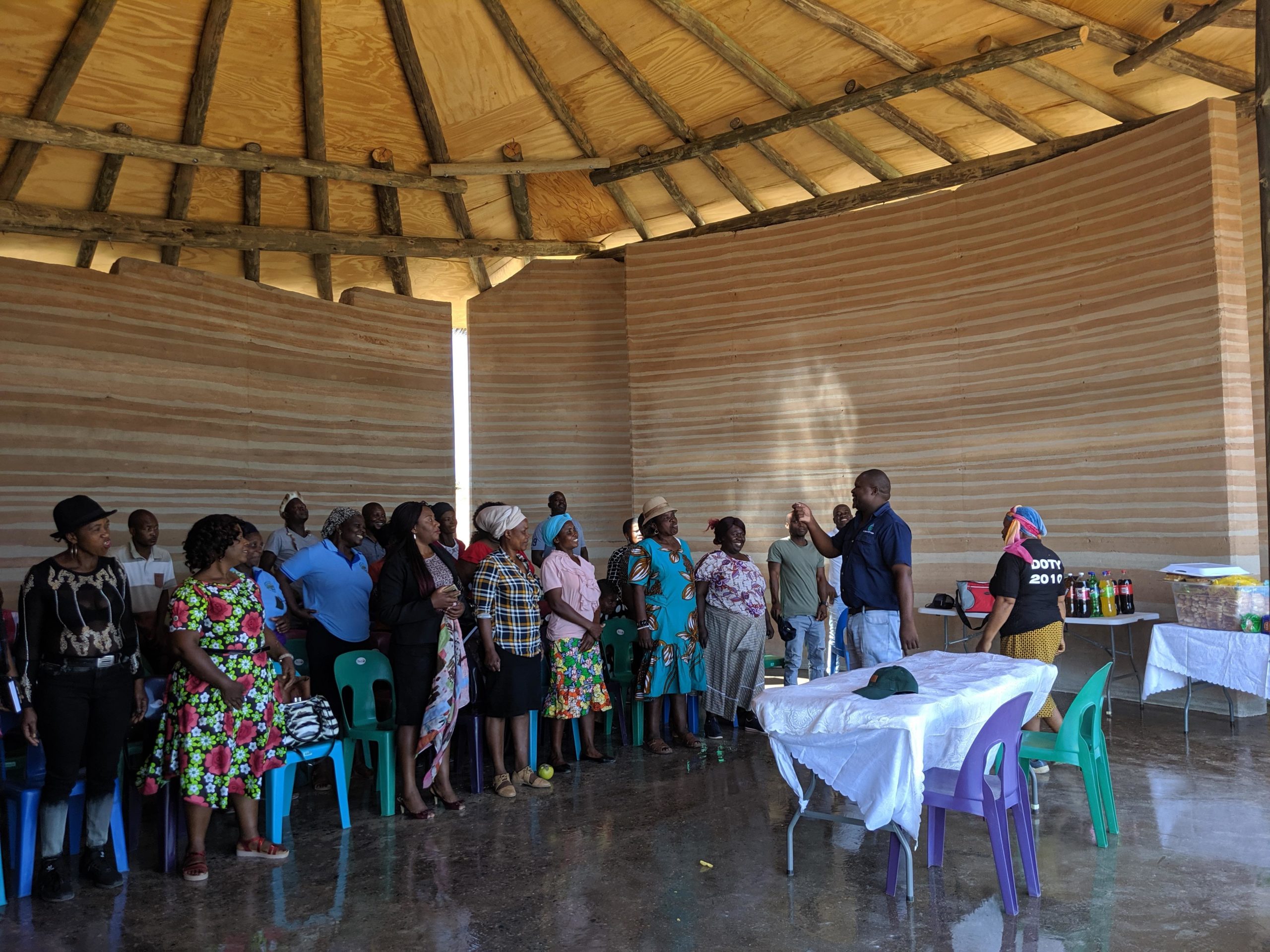
If you would like to know more about our new programs please contact Emily Cupo, at .
Want to learn more about permaculture?
Here are a few sites, to check out!
https://ethical.net/ethical/permaculture-principles/
https://www.permaculturenews.org/what-is-permaculture/
https://www.permaculture.co.uk/what-is-permaculture
Citations:
Risenga, M. (2017). Towards measuring the extent of food security in South Africa: An examination of hunger and food inadequacy (pp. Vi-25, Rep. No. 03-00-14). Pretoria, South Africa: Statistics South Africa.
